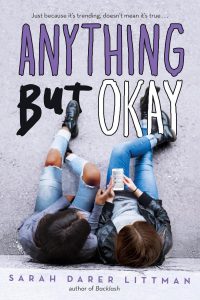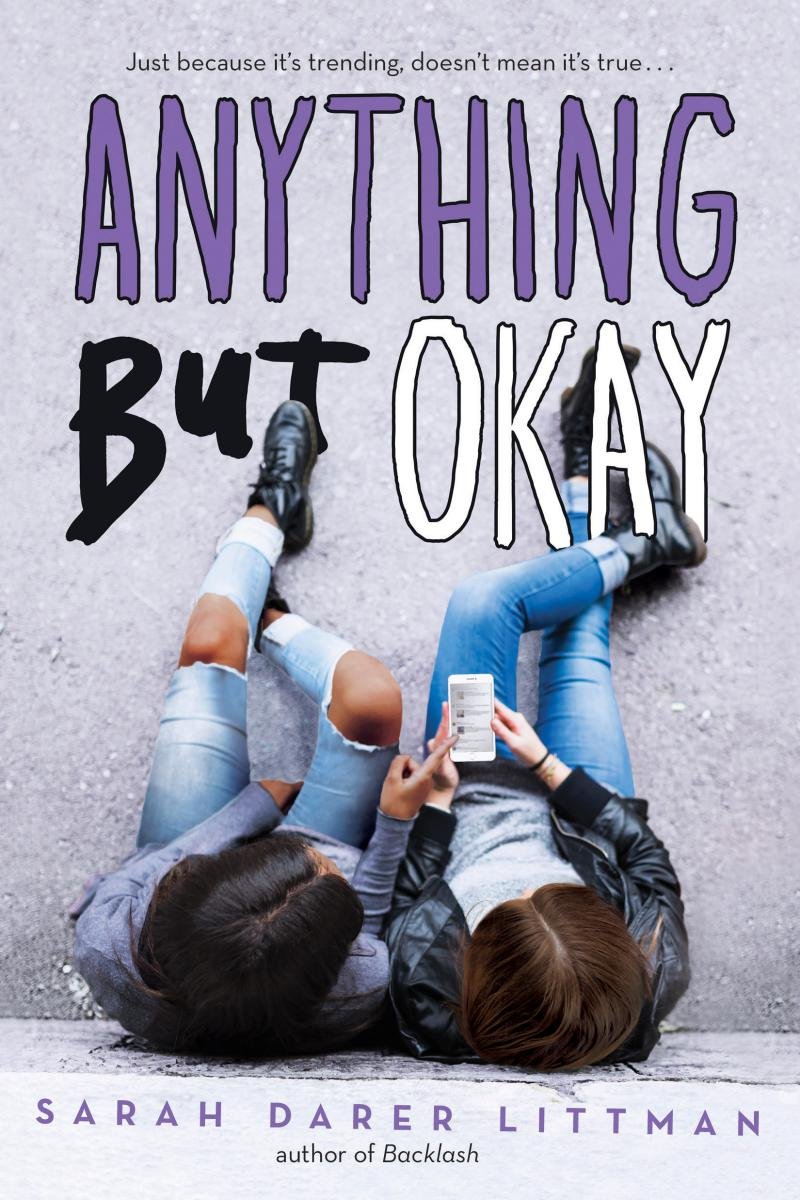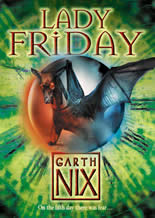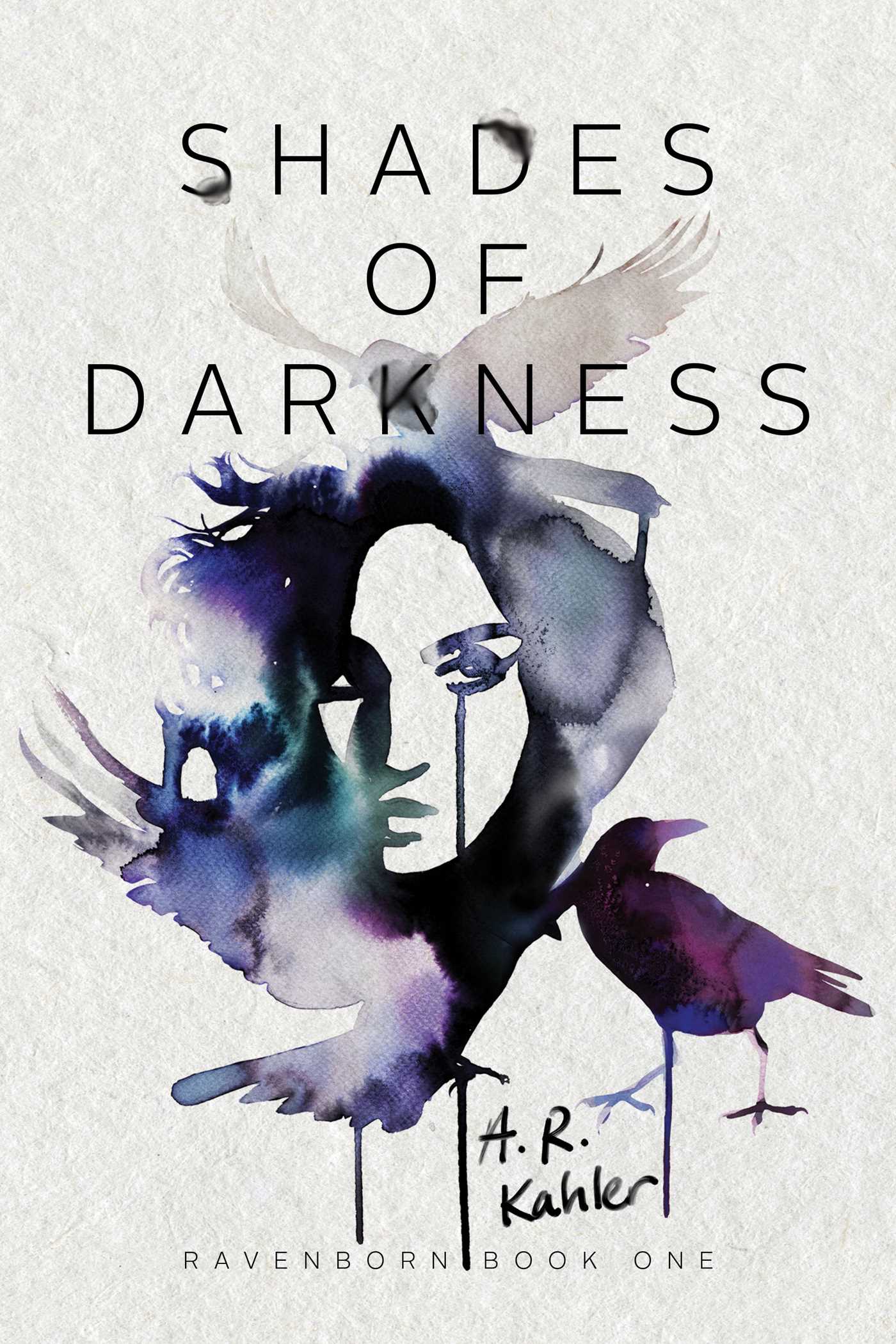 Anything but Okay, by Sarah Darer Littman, is about a girl named Stella and the struggles her family faces when her older brother, Rob, returns from his second tour in Afghanistan as almost a complete stranger. No one will talk to Stella about why Rob is this way, so she decides to take matters into her own hands. In an attempt to help Rob open up and start acting more like his old self, Stella takes her brother out to a movie. But instead of a fun outing, the night out ends with her brother in handcuffs and a viral video showing Rob’s brutal assault of one of Stella’s classmates. As the story gains popularity on the internet and everyone chooses a side, Stella is torn between letting her brother’s secrets stay hidden or digging deeper to find out what is really wrong with Rob.
Anything but Okay, by Sarah Darer Littman, is about a girl named Stella and the struggles her family faces when her older brother, Rob, returns from his second tour in Afghanistan as almost a complete stranger. No one will talk to Stella about why Rob is this way, so she decides to take matters into her own hands. In an attempt to help Rob open up and start acting more like his old self, Stella takes her brother out to a movie. But instead of a fun outing, the night out ends with her brother in handcuffs and a viral video showing Rob’s brutal assault of one of Stella’s classmates. As the story gains popularity on the internet and everyone chooses a side, Stella is torn between letting her brother’s secrets stay hidden or digging deeper to find out what is really wrong with Rob.
This book was a solid four-star read for me. There were things that I liked about it, and there were things that I didn’t like about it.
While I have minimal personal experience with vets (my best friend came home from Afghanistan a different person; we don’t talk about it – the end), I feel that Sarah Darer Littman did a wonderful job portraying not only the PTSD and the hardships veterans face when they try to reintegrate into civilian life but also the struggles their families and friends encounter when they are forced to make adjustments as well. In our country, there is a clear disconnect between how we portray patriotism and how we treat our veterans, and this book goes into some of the important conversations that need to be had more often in order to understand how we can help – and how our help sometimes does more harm than good.
One big focus in Anything but Okay is that you can’t believe everything you see on the internet. We live in a world of “click, share, repeat,” where everyone is searching for new ways to go viral, and everyone has an opinion about everything. But what comes from the viral video of Rob assaulting Stella’s classmate is a conversation about how there are always multiple sides to every story. You can’t always believe everything you see on the internet, and this is a hugely important topic that I think more YA authors should touch on.
Another thing that this book did well was bring up points about racism and oppression, especially when it comes to how people who are in a place of privilege might not even realize that these things are happening right in front of their faces. An example that Farida, Stella’s best friend, brings up is the movie Aladdin and all of the negative perceptions of Middle Eastern culture that are thrown in and shown to children at a young age.
On the subject of Farida, she was one of the few things about this book that I didn’t enjoy. I understand the importance of educating about racism, and I understand the struggles and prejudices that people of color and people of non-Christian backgrounds face – and why it’s important to bring this all up in a natural setting like a young adult book. However, Farida almost always comes off as pushy and downright condescending, which is sometimes the worst way to go about educating someone on something as important as racism.
All in all, this was a great read. It was extremely emotional, and I caught myself getting choked up a few times. It raises all sorts of important topics – from mental health to racism to not believing everything you see on the internet. I would recommend this book to fans of Laurie Halse Anderson’s The Impossible Knife of Memory.
A copy of this book was provided by the publisher, Scholastic, in exchange for an honest review.




